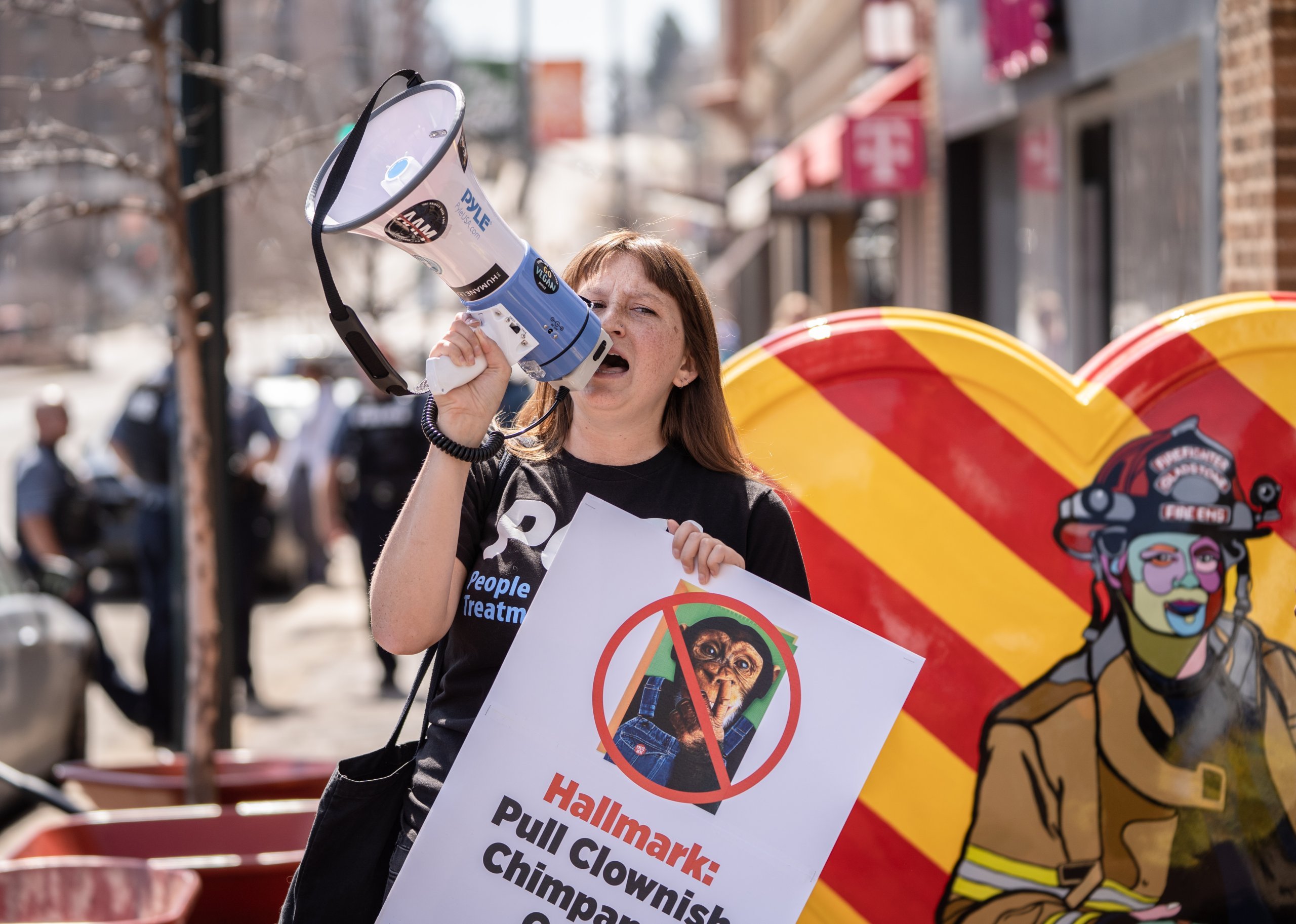Saying Goodbye to Harmful Greeting Cards, Hallmark Makes a Change for Chimpanzees
Victory! Following a bold PETA campaign, Hallmark, the world’s largest greeting card company, has stopped producing and selling cards featuring harmful and degrading images of chimpanzee infants who were torn away from their mothers.
Hallmark’s action comes after PETA held lively demonstrations near the company’s headquarters, ran creative ads, and enlisted the help of celebrities, including Judy Greer, to write heartfelt letters.
Our conscientious supporters sent tens of thousands of e-mails to the card company, which also faced pressure from drug stores and retailers that had stopped selling these cards.

Clownish images of chimpanzees dressed in costumes and displaying a “fear grimace,” which the public is fooled into mistaking for a grin, impede conservation efforts by leading consumers to believe that the species is thriving rather than endangered. They also may drive the black-market demand for the animals as “pets”—one of the main threats to their populations in nature.
Hallmark’s decision to stop mocking endangered great apes acknowledges that portrayals hold power, and for chimpanzees threatened with extinction, it can be a matter of life or death. PETA is celebrating this victory for chimpanzees, who should never be exploited as models or props.
Hallmark was the last major card manufacturer still selling cards with exploitative images of great apes.
It joins other card companies, including American Greetings; major retailers, such as CVS, Rite Aid, Walgreens, and Walmart; and stock-image agencies, such as Dreamstime and Shutterstock, in banning the harmful depictions.
Other Primates Need Your Help
Right now, thousands of monkeys and other primates are languishing in cages, living in fear, and being denied everything that’s natural and important to them. These complex individuals are used in crude, cruel, and useless experiments; they’re forced—out of fear—to “perform” on the sets of television shows and Hollywood movies; and many are captured in their native habitats, torn away from their families, and then shipped to the U.S.

